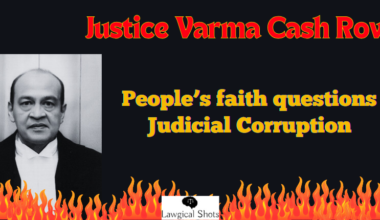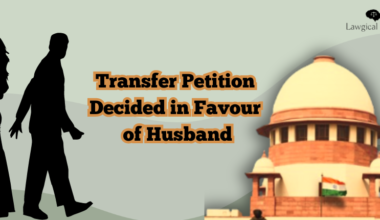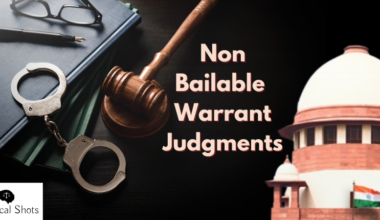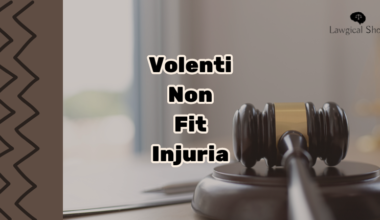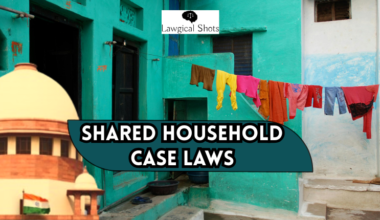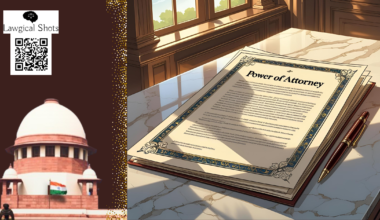When heinous crimes are committed in a locality, outrage spreads to a distance. However, such times are critical, and any eminent personality should act responsibly rather than having a loose tongue. Just imagine a family goes through a robbery/dacoity and the women of such family are gangraped. At such a point, a State Minister cribs political agenda by the opposition. While anyone would say this should not be backed by right to expression, the Apex Court decided the question in Kaushal Kishor v. State of UP in 2023. The case has been decrypted here under.
Facts of the case
This case related to an incident occurred in Bulandshahr on a National Highway in Uttar Pradesh in 2016. A family was going from Noida to Shahjahanpur to attend the death ceremony of a relative, where they were stopped by a gang who snatched their cash and jewellery and gangraped the wife and minor daughter. An FIR was registered which received extensive media coverage.
A controversy arose when Azam Khan, then Minister of Uttar Pradesh Government, called the incident a “political conspiracy” in a Press Conference. Thus, the petitioner filed the instant writ petition under article 32 of Constitution of India for compensation to the victims and family, and also sought registration of an FIR againstUP Minister Azam Khan for the “outrageous statement”. . Since the petitioner also feared that fair trial would not be conducted, so he further sought transfer of trial in the interest of justice from Bulandshahar to Delhi.
A similar type of case was clubbed with the instant matter wherein a similar question arose before the Constitution Bench of Supreme Court. The incident happened in Kerala where writ petition was filed against the Minister for Electricity in Kerala who gave derogatory statement against a woman on which no official action was taken place.
Issues in Kaushal Kishor v. State of UP
- Can the Court impose additional restrictions on the right to freedom of speech and expression beyond those specified in Article 19(2) by relying on other fundamental rights?
- Can a fundamental right under article 19 and 21 be claimed other than state and its instrumentalities?
- Does the State have an obligation under Article 21 to actively safeguard citizens’ rights, even when the threat to their liberty comes from private individuals or organizations?
- Should a minister’s statement, made in relation to government affairs or in defense of the administration, be considered as an official stance of the government under the principle of Collective Responsibility?
- If a Minister makes a statement that contradicts the fundamental rights guaranteed under Part III of the Constitution, does it amount to a violation of those rights, making the government liable under the doctrine of Constitutional Tort?
Arguments in Kaushal Kishor v. State of UP
Arguments Presented by the Amicus Curie
- It was contended that the reasonable restriction of freedom of speech and expression under Article 19(1)(a) is provided under Article 19(2). Whenever two fundamental rights are in conflict with each other, the Courts always try to strike a balance between the two. The counsel cited many cases, such as R. Rajagopal vs. State of Tamil Nadu (1994), People’s Union of Civil Liberties (PUCL) vs. Union of India (1996), Sahara India Real Estate Corporation Ltd. vs. Securities and Exchange Board of India (2012).
- It was further contended that there are some fundamental rights such as Articles 15(2), 17, 23, 24 which are enforceable against private individuals. The State has a duty to protect citizens’ rights even against non-State actors (PUDR, Bodhisattwa Gautam, M.C. Mehta).
- They further contended that Fundamental rights are both positive as well as negative rights. Those rights under which the State having obligation to protect the rights from being violated or infringed is a positive right, K.S. Puttaswamy vs. Union of India (2018). The learned counsel also cited the case of Pt. Parmanand Katara vs. Union of India & Ors. (1989) where the Court held that the doctors in Government hospitals are also obligated to enforce the constitutional duty of the State under Article 21.
- The counsel contended that a cabinet minister, while performing its official duties, acts on behalf of the State, making State liable for their actions. The court must evaluate whether the minister acted in an official or personal capacity. The counsel cited cases like Amish Devgan vs. Union of India (2020) (on public officials’ influence), State of Maharashtra vs. Sarabgdharsingh Chavan (2010) (holding the State responsible for a Chief Minister’s interference in an investigation), Daulat Mal Jain (1996) and Manoj Narula (2014) (constitutional duties of ministers), and R. Sai Bharathi (2003) (non-enforceability of ministerial codes of conduct). The amicus curiae concluded that ministers must act in line with the State’s constitutional duties.
- The counsel further argued that the State, being an abstract entity, functions through its officials, including cabinet ministers. So, the State must be held liable for the wrongful acts of its instrumentalities under Constitutional Tort Law and cannot claim sovereign immunity when fundamental rights are violated. The argument was supported by Nilabati Behera vs. State of Orissa (1993) and Common Cause vs. Union of India (2018), both of which discuss State liability.
Argument presented for Petitioner
- It was contended that Political leaders in public office should adhere to a code of conduct to ensure their speech is responsible and transparent, as their words have the power to influence government policies. This code ought to adhere to good governance and constitutional principles. He also recommended for the establishment of an Ombudsmen to monitor abuse of any free speech and expression by public officials. In the interim, the Protection of Human Rights Act, 1993 should be followed by the National and State Human Rights Commissions.
- Citing Articles 75(3) and 164(2) of the Constitution, the collective responsibility of ministers was discussed, stating that although they answer to the legislature and cabinet, they should also be answerable to the general public.
- With reference to the Sakal Papers (1961) case, which dealt with freedom of speech (Article 19), in which the Supreme Court held that freedom of speech could only be restricted under Article 19(2) on the basis of certain grounds, such as morality and public order and the court cannot introduce the new restriction by itself.
- It was further contended that the transition from laissez-faire, to welfare governance, expands the role of the State in defending citizens’ rights. In certain nations, such as Canada, Germany, Ireland, and South Africa, fundamental rights extend beyond the State to include private citizens also. Only Articles 15(2), 17, 23, and 24 are applicable in India. However, when private organizations carry out legal or public duties, courts have used Article 32 to hold them responsible (M.C. Mehta vs. Union of India, 1986).
- The Petitioner’s counsel also highlighted the rise in hate speech in India, referring to the UN Strategy on Hate Speech and a European Parliamentary Assembly resolution, which stresses upon political leaders being careful with their words to prevent hate and intolerance.
- Lastly, it was clarified that this case did not involve a conflict between fundamental rights. Instead, the Court must decide whether ministers and public officials can be subject to constitutional restrictions on their speech.
Arguments for the State
- The Attorney General argued that any changes in the grounds for restricting fundamental rights under article 19(2) of Constitution of India must be made through legislation, and Courts cannot expand them beyond what is stated in Article 19(2).
- It was further argued that the Constitution already specifies rights which are enforceable against private individuals, and addition of any more right would require the Constitutional Amendments.
- He further arguing that fundamental rights violations are addressed through writs under Articles 32 Supreme Court and article 226 High Court, and there is no additional duty on the State to protect individual liberties beyond these provisions.
- He further argued that a Minister’s misconduct, if unrelated to official duties, is an individual act, and the government cannot be held vicariously liable for his conduct or act.
- He finally contended that the courts have granted compensation for constitutional violations, a clearer legal framework is needed for consistency and certainty.
Kaushal Kishor v. State of UP Case Summary
- The Supreme Court held that freedom of speech and expression under Article 19(1)(a) is not absolute and can only be restricted based on the grounds mentioned in Article 19(2) (such as public order, defamation, and morality), and not on any additional grounds. On this issue all 5 judges were anonymous.
- In this case Supreme Court by 4:1 expanded the scope of Article 19 and 21 (Right to Life and Personal Liberty), ruling that it is not limited to State action but can also be invoked against non-state actors or its instrumentalities in certain situations.
- Supreme Court further held that the State has a duty to protect citizens from violations of their fundamental rights under Article 21 whenever there is a threat to personal liberty, even by the non-State actors.
- The Apex Court ruled that collective responsibility of the Council of Ministers applies to the decisions and actions of the entire Council, not to every statement made by an individual Minister. Each Minister is responsible for decisions taken together by the Council, but not for personal statements made by other Ministers. Responsibility flows from the Council to individual Ministers, not the other way around. Therefore, if a Minister makes a statement—even if it relates to Government affairs or supports the gGovernment—it cannot be automatically blamed on the Government under the principle of collective responsibility.
- The Court rejected the argument that statements made by public officials should automatically be treated as Constitutional Torts (i.e., wrongful actions by state agents that violate fundamental rights). However, if a public official’s statement causes actual harm to an individual, legal action may be possible under civil or criminal law under Constitutional Tort, rather than through a constitutional remedy.
The Supreme Court judgment in Kaushal Kishor v. State of UP has been decoded by our intern, Mr. Shubham Chandrakar. He joined the team to assist and bring informational legal blogs.


